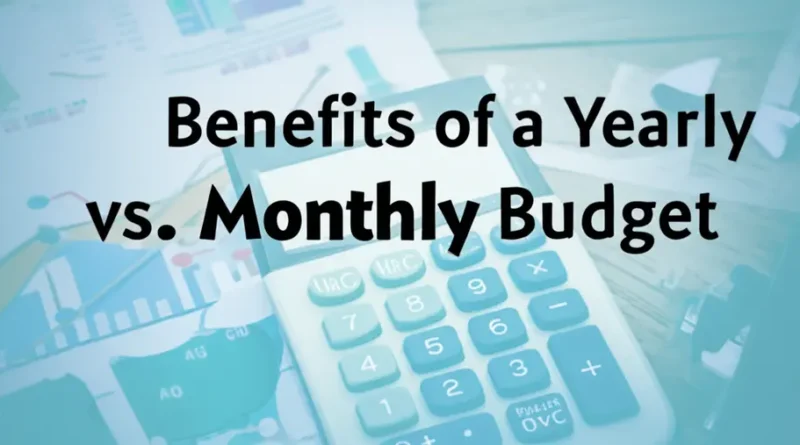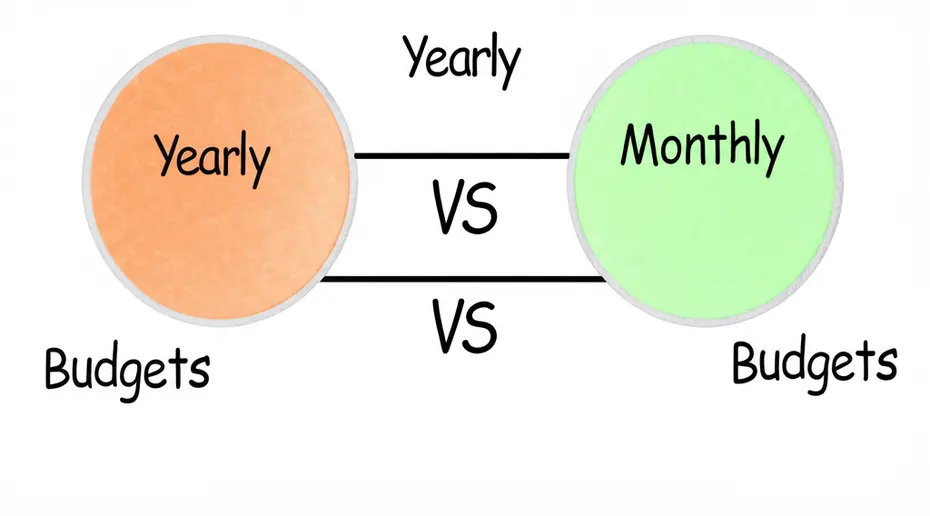The Benefits of a Yearly Budget vs. a Monthly Budget
The advantages of having a yearly budget are numerous. While monthly budgets may work for some, a yearly budget provides a broader view of your financial landscape. It allows you to plan for major expenses like vacations, home repairs, and education costs over a 12-month horizon, ensuring that no unexpected financial surprises derail your plans.
- With a yearly budget, you can set and track long-term financial goals more effectively.
- It encourages saving for future events rather than just reacting to immediate expenses.
- Yearly budgeting fosters a greater awareness of your spending habits, which can inspire better financial decisions.
[Image: A yearly budget overview showing major expenses and savings goals.]
Conversely, monthly budgets are excellent for managing your day-to-day finances. They help you keep a close eye on your expenses and ensure that you do not overspend on groceries, entertainment, or bills. Monthly budgeting gives a snapshot of your financial health, making it easier to adjust spending based on your needs.
- Tracking expenses monthly can create good habits and accountability.
- It allows for quick adaptations to changing financial situations, such as a new job or unexpected expenses.
- Monthly reviews allow for regular assessments of where you can save more effectively.
[Image: A monthly budget template highlighting expenses and savings.]
One of the most significant benefits of a yearly budget over a monthly budget is the ability to see the “big picture.” Yearly budgets highlight the importance of aligning your short-term spending with long-term financial goals. By breaking down your yearly budget into monthly allocations, you can better allocate resources without losing sight of your overall objectives.
- For example, if you’re planning a wedding, having a yearly budget allows you to save bit by bit over the year.
- Yearly budgets can help you prioritize spending according to your changing needs.
- Investments and savings can be distributed throughout the year to prevent last-minute rushes.
[Image: A chart showing the allocation of yearly financial goals.]
Another important aspect is financial discipline. A yearly budget encourages you to review your finances less frequently, which can be beneficial for those who feel overwhelmed by constant financial scrutiny. However, it still urges periodic reviews throughout the year to keep track of goals and adjust if necessary. This balance can help ease financial stress while maintaining control.
- Finding this balance is crucial for long-term financial health.
- A yearly budget can also help you understand seasonal spending trends.
- Less frequent reviews prevent fatigue and over-analysis, encouraging adherence to the budget.
[Image: Graph showing seasonal spending trends over a year.]
Ultimately, the choice between a yearly and a monthly budget depends on individual preferences and financial situations. Some may find that a combination of both strategies works best, allowing for detailed oversight while keeping an eye on the overall direction of their finances. In summary, whether you favor a yearly or monthly budget, what matters most is that you find a system that suits your lifestyle and helps you achieve your financial goals.
- Both methods provide unique benefits that can complement each other.
- The key to successful budgeting is regular monitoring and adjustments based on your circumstances.
- By combining these two approaches, you may create a comprehensive budgeting strategy.
[Image: A Venn diagram comparing yearly vs. monthly budgets.]









